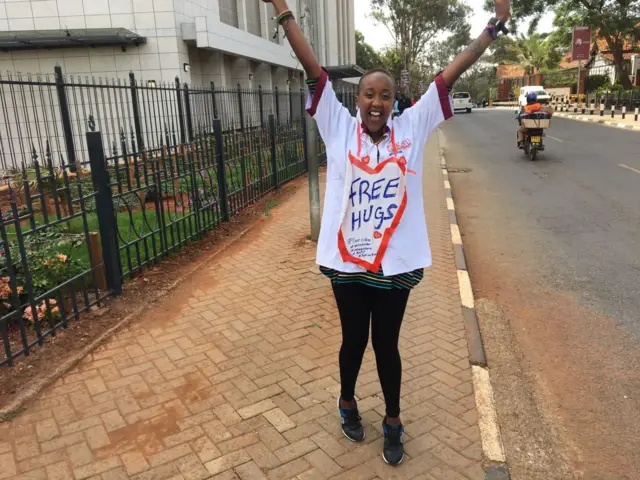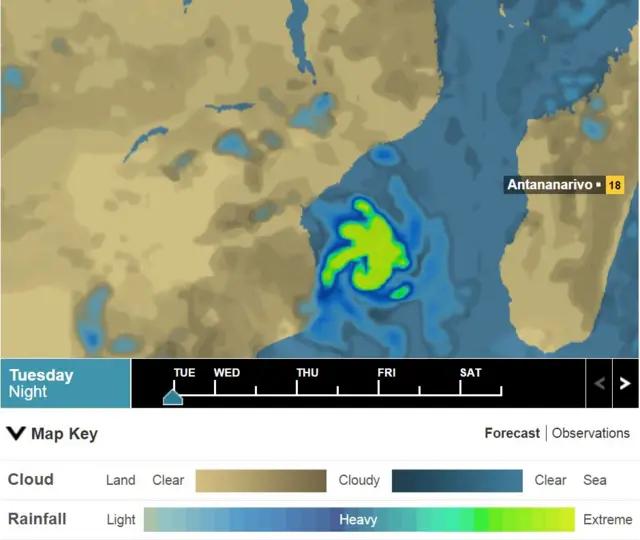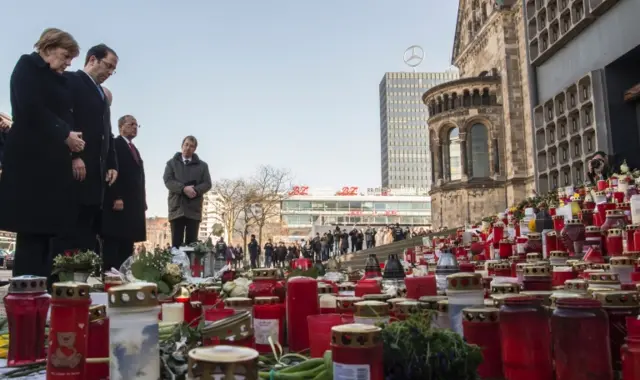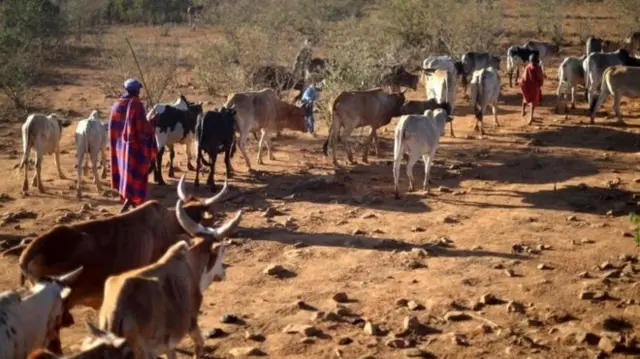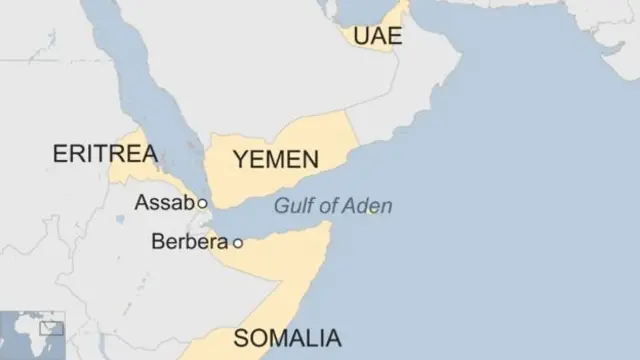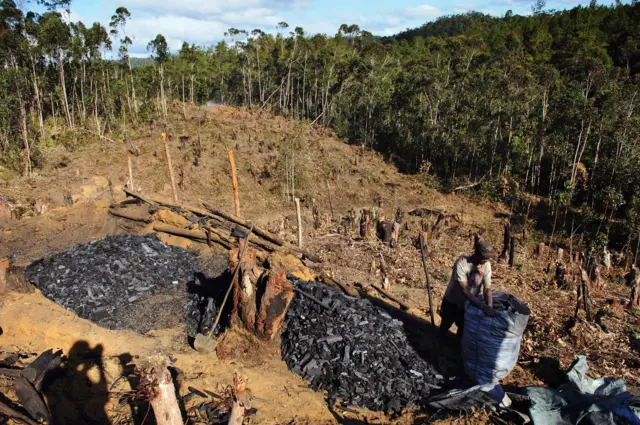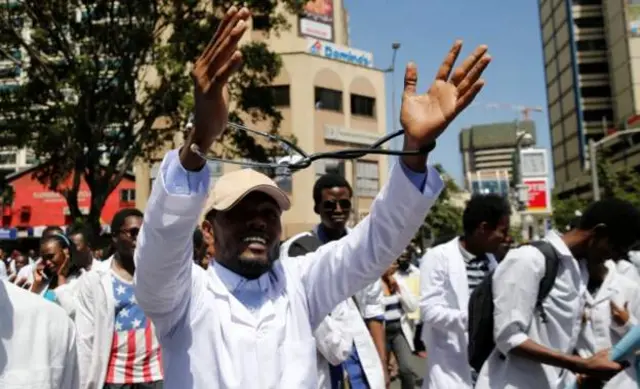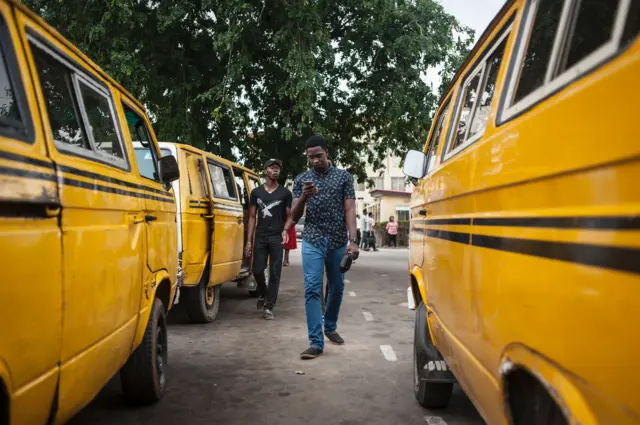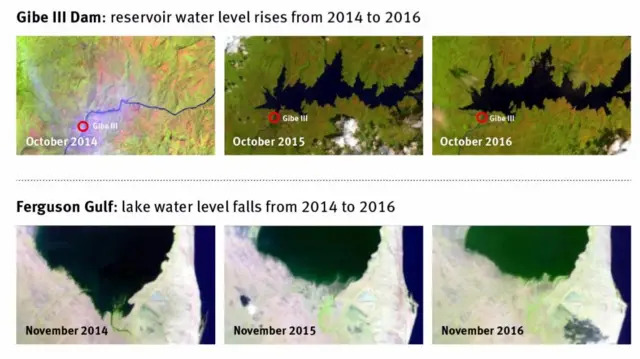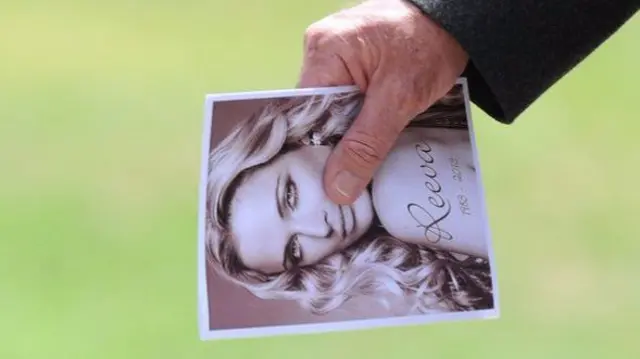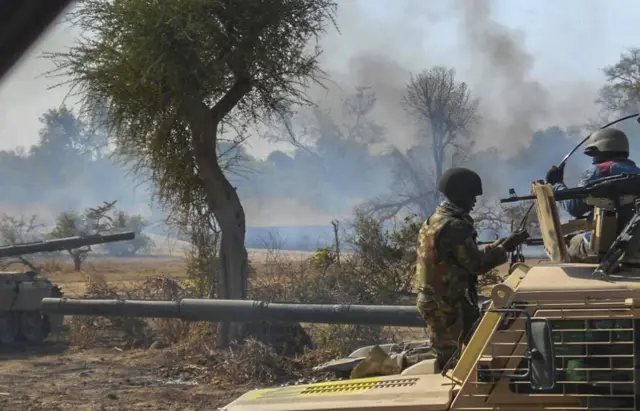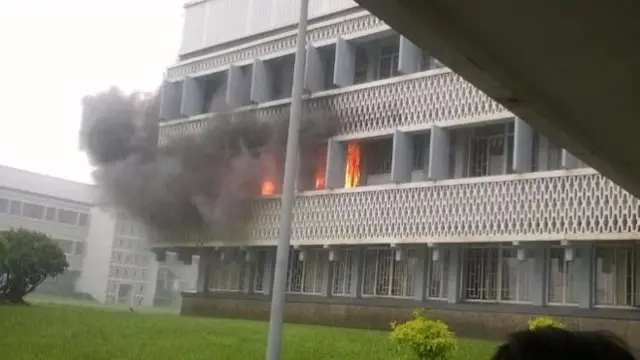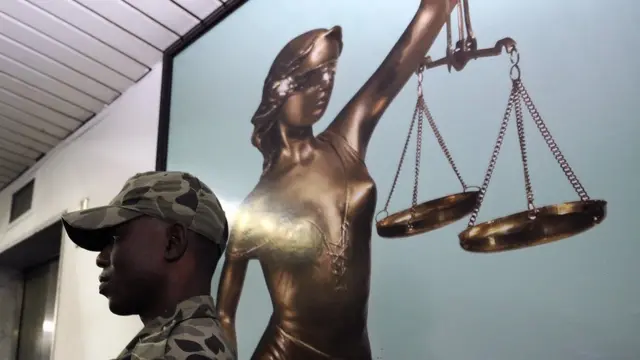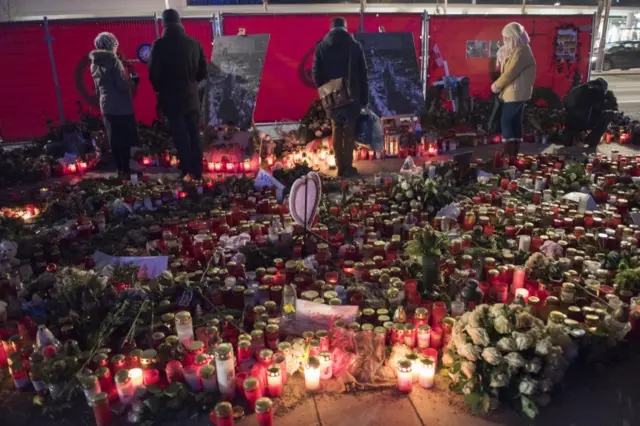Scroll down for Tuesday's storiespublished at 18:07 Greenwich Mean Time 14 February 2017published at 18:07 14 February 2017
We'll be back tomorrow
That's all from the BBC Africa Live page today. Keep up-to-date with what's happening across the continent by listening to the Africa Today podcast or checking the BBC News website.
A reminder of today's wise words:
Quote MessageLove is like a cough, it cannot be hidden."
Click here to send your African proverbs.
And on the Valentines Day theme, we leave you with this image of a Kenyan woman giving out free hugs on the streets of Kenya's capital Nairobi.
Njeri told our reporter Emmanual Igunza that love is for free.
